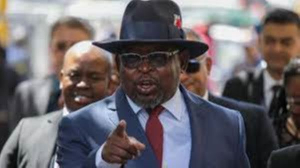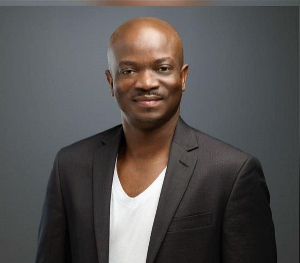Accra (Greater Accra) 8th July '99
African delegates to the conference of the International Social Security Association (ISSA) on Wednesday criticised the World Bank for pushing "too hard" for social security reforms in Africa.
While the Bank is calling for privatisation, which could lead to autonomy for African Social Security Institutions, the Africans want support from the Bank to improve on their achievements made so far.
This followed a lengthy discussion during the second-day session of the conference attended by over 200 delegates from 30 African Countries, the World Bank, International Labour Organisation and donor agencies.
The three-day conference, which is under the theme "Social Security in Africa; New Realities", is looking into selected issues in pension reform relevant to the African context.
Topics under discussion include governance of social security schemes, pension schemes in Africa, Social security medical care, and informing the public - a challenge for social security schemes.
Currently, world-wide debate on social security centres on privatisation, defined benefits in relation to defined contributions, transparency in the investment of funds and enhancing administrative efficiency.
A presentation by the Bank's representatives, Mr Luca Barbone and Luis-Alvaro Sanchez, that sought to push for a reform in the social security structures on the continent set the tone for an "artificial polarisation" between the Bank and the Africans.
According to the Bank, Africa is beset with substantial problems such as financial crisis, low coverage, administrative difficulties, poor returns to investment which have cast the credibility of social security systems in Africa in doubt.
It thinks Africa's 10 per cent coverage of its active population that forms only three per cent of the entire population could be improved.
"Our worry is how to reach the 90-odd per cent of non-covered in the typical African country.
"Mostly, coverage has stagnated or shrunk," the Bank's officials said.
The Bank said in a well-designed system, membership and revenues can grow at rates higher than the economy.
"This is what other continents' experiences show. There is not much pension fund administrations can do by themselves; much will depend on the soundness of overall economic policy," the World Bank team said.
The Bank, architect of most African reforms, suggested they should involve relevant stakeholders including those not formally represented through consultations.
But the Africans said there is no single solution to social security problems that can be applied to all nations in view of the diversity of cultures and level of economic development.
To them, most nations have already experienced contraction in revenue through loss of jobs by contributors as a result of the Bank's sponsored economic reforms.
The Africans said the cultural diversity and large size of the informal sector have some inherent social safety nets which must not be destroyed but strengthened under a broad social protection concept.
"Instead of pushing for privatisation of the institutions in Africa, the Bank should rather support us with new ways of investing our finances outside our countries," " a Senegalese delegate said.
According to the delegate, the integration of regional economies such as the ECOWAS has opened up new off-shore investment avenues through the newly created regional stock markets.
Ghana's delegates said, already, some African Social Security institutions are autonomous and performing better than private companies engaged in similar social protection business.
"In Ghana, we have managed to keep the government at arm's length from the social security dues even though it still remains a public institution," said Mr Eric N. A. Adjei, Deputy Director General of SSNIT.
In spite of the differences in the structures and legal framework of social securities in Africa, the session was close to a consensus on the need for Africa to improve on its coverage to meet the challenges of the 21st century.
General News of Thursday, 8 July 1999
Source: --












